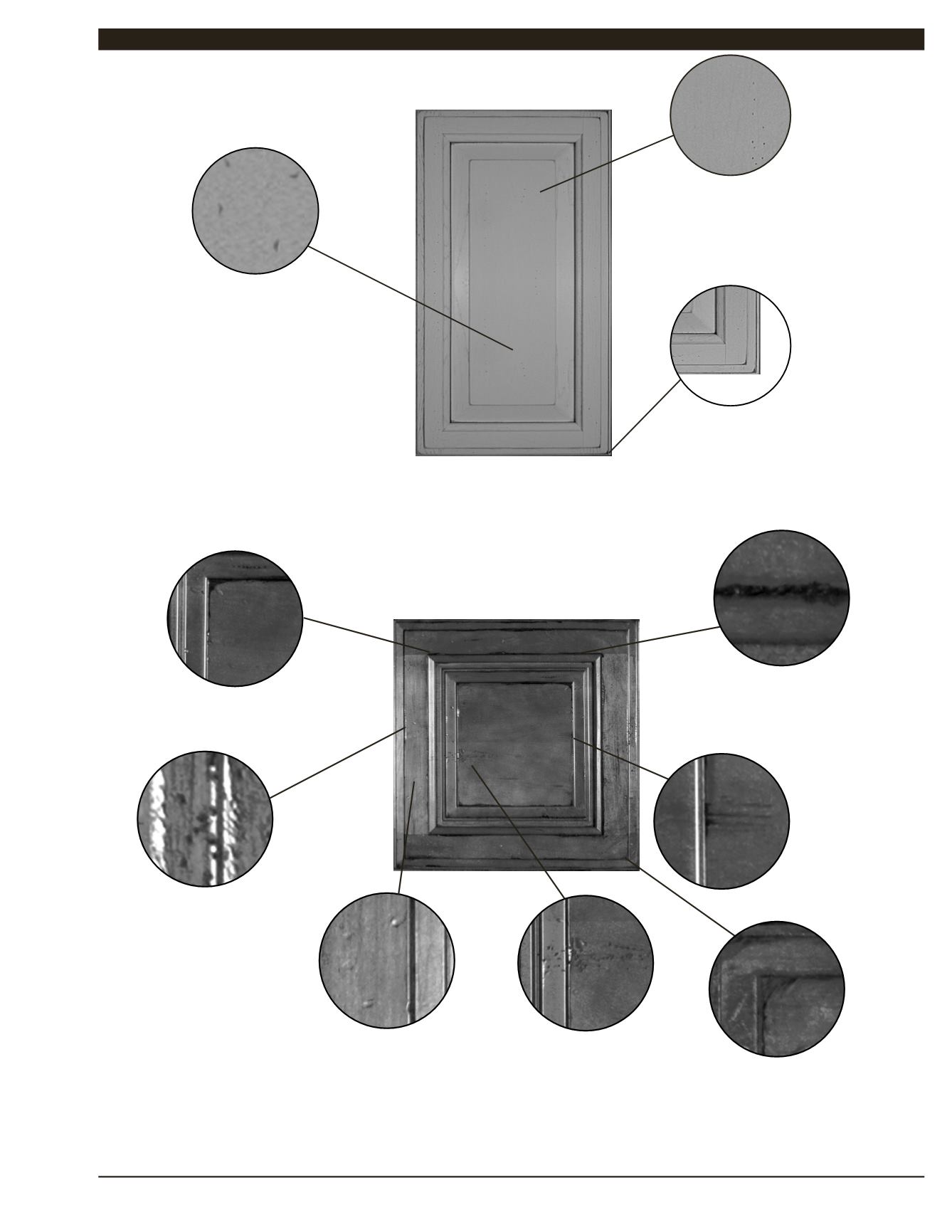

Premier–1–41
WORM HOLES –
A physical technique of randomly
placing small round holes that mimics
the look of insect penetration which
occurs naturally in trees and harvested
wood. Worm Holes are smaller than
Small Dents and will collect a glaze in
varying amounts when applied.
RASPING –
A physical technique using a metal
scrapper called a rasp which runs over
the edges and raised details to mimic
severe wear.
Olde World
Carriage
DRY BRUSHING –
A technique applying a
very dark stain to highlight
the distressing on the
surface of the wood.
BURNISHING –
A technique where the profile edges have been darkened
to create an antiqued effect.
MEDIUM DENTS –
A physical technique of randomly striking the wood surface with
a tool to create indentations that mimic the look of aged wood.
Medium Dents are larger than Worm Holes and will collect a glaze
in varying amounts when applied.
CARVED EDGES –
A technique where small areas of the
wood surface are chiseled out on door
edges and corners to create a high level
of worn look.
RUB THROUGH –
A sanding technique used to
randomly expose an undercoat of
natural wood tone on corners and
edges.
SMALL DENTS –
A physical technique of randomly striking the
wood surface with a tool to create indentations
that mimic the look of aged wood. Small Dents are
larger than Worm Holes and will collect a glaze in
varying amounts when applied.
WORM HOLES –
A physical technique of randomly placing
small round holes that mimic the look of
insect penetration which occurs naturally in
trees and harvested wood. Worm Holes are
smaller than Small Dents and will collect a
glaze in varying amounts when applied.
RUB THROUGH –
A sanding technique used to randomly expose
an undercoat of natural wood tone on corners
and edges.
• Glaze Required for Maple, Character Maple,
Oak and Hickory
• Glaze Optional for Cherry and
Character Cherry
• Glaze Required for Maple, Character Maple, Oak and
Hickory
• Glaze Optional for Cherry and Character Cherry
DOCUMENT OF UNDERSTANDING SPECIAL EFFECTS
(continued)


















